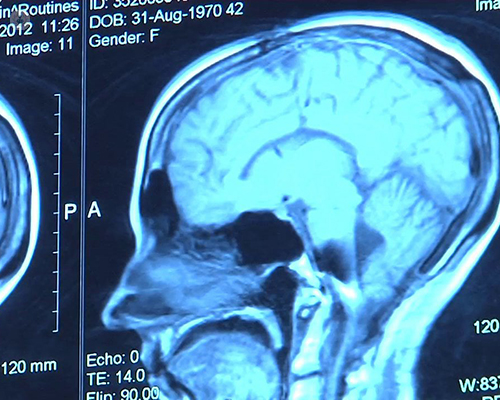Functional neurological disorder: what exactly is it?
Escrito por:The emotional centre of the human brain can affect our lives in a variety of different ways. We can suffer from the life-disrupting functional neurological disorder if our emotions are not functioning correctly. In this article, expert consultant neurologist, Dr Ezzat Awad, details the condition in further detail, outlining its various causes, as well as the typical prognosis of the disorder.

What is functional neurological disorder (FND)?
My simple definition for functional neurological disorder (FND) is a group of neurological symptoms that are not caused by or explained by any neurological conditions. This group of mysterious symptoms can adversely affect some patients.
These symptoms are mainly caused due to disturbance of the emotional centre of the brain. Functional neurological disorder simply implies that your central nervous system is completely intact, but your emotions that drive you are experiencing a functional problem.
How common is FND?
FND can affect roughly 20 patients in every 100,000 patients. However, this condition is underestimated and many patients might be misdiagnosed and be advised that they have stress-related symptoms.
Is FND a disability?
You are classified disabled under the Equality Act 2010 if you have a physical or mental impairment that has a substantial and long-term negative effect on your ability to carry out and engage in normal daily activities. Therefore, FND can cause a disability if severe, or if the condition is resistant to treatment, and if the disorder has a long-term negative effect on your ability to do typical everyday activities.
What causes FND?
The main cause of FND is unknown, however the symptoms could be connected and linked to different triggers such as anxiety, depression, and unstable emotional personality disorder and generalized pain syndrome.
In the last few decades, it was thought that FND was a mere psychological problem. However, following the rapid advancements and development of functional brain imaging, different research and studies supported evidence of brain changes in people with FND in comparison to other people not suffering from the condition.

What other conditions is FND related to?
Today, FND is typically found with multiple related conditions. These include:
- heart disease
- genetic factors
- diet
- stress-related and psychological conditions
What are the symptoms of FND?
The symptoms of FND vary from person to person. Some patients may experience a single group of symptoms, whilst others might struggle with a group of unexplained symptoms. The patient may have one or a group of the following symptoms:
- Sensory symptoms. Our brain receives various different signals from different organs and receives messages from our eyes, ears, joints, muscles and the skin. All those signals are processed in the brain. When it comes to FND, those signals can be disturbed by either sending higher than usual signals or lower than usual signals which start to lead to different symptoms.
- Reduced concentration and short-term memory problems.
- Generalized fatigue and sleep problems including oversleeping or insomnia.
- Movement symptoms.
- Non-epileptic seizures
How is FND typically diagnosed?
The diagnosis of functional neurological disorder is quite a complex process, which requires experts in FND to avoid missing or failing to diagnose any other condition with similar symptoms. The diagnosis is not only carried out by exclusion. Rather, experts should ideally put puzzle pieces together, including a detailed clinical history, examination, investigations and relative triggers. It could take weeks, or even months, to accurately diagnose FND, as many investigations may be needed due to the complexity of the symptoms.
Can FND symptoms lead to a misdiagnosis of another condition?
It is not uncommon to diagnose a condition as FND, due to the complexity of the symptoms. Common misdiagnoses might include epilepsy, essential tremors, dystonia, migraine variant as well as various eye diseases.
Can functional neurological disorder be cured? What is the prognosis?
Early diagnosis and management definitely improve the diagnosis. Delay of the diagnosis, however, can lead to difficulty in treating the condition. The treatment is performed by a team which includes a neurologist, psychiatrist, pain consultant and psychologist.
What factors do you consider when creating a treatment plan?
Everyone has their own individual plan for management, but the most common for this specific condition would include both conventional and non-conventional treatment, typically cognitive behavior therapy and psychotherapy.
If you are seeking further information about functional neurological disorder, or any other neurological disease, Dr Ezzat Awad has a special interest in this field. You can check out his Top Doctor’s profile here to check his availability and book an appointment with him.


